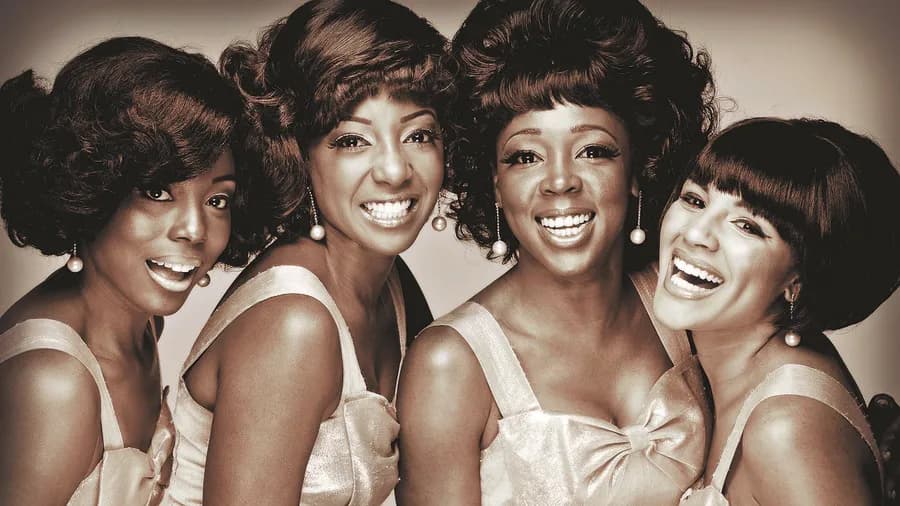
The Shirelles – “Will You Love Me Tomorrow”: A Pioneering Ballad of Love and Vulnerability
The Shirelles’ “Will You Love Me Tomorrow” is a groundbreaking pop ballad that captures the uncertainty and longing of young love. Released in 1960, the song became the first by an all-female group to reach No. 1 on the Billboard Hot 100, solidifying its place in music history. Written by Carole King and Gerry Goffin, the song’s tender lyrics and lush arrangement make it a timeless classic that speaks to the universal desire for love, trust, and reassurance.
The song opens with a gentle string introduction, immediately setting a romantic and introspective tone. The arrangement blends elements of pop, R&B, and doo-wop, creating a sound that is both elegant and accessible. The lush instrumentation, with its prominent strings and subtle percussion, complements the heartfelt vocals, giving the song a dreamy quality that mirrors the vulnerability of its lyrics.
Lyrically, “Will You Love Me Tomorrow” explores the emotions of a young woman grappling with the uncertainty of love. Lines like “Tonight you’re mine, completely / You give your love so sweetly” capture the intimacy and tenderness of the moment, while the refrain, “Will you still love me tomorrow?” expresses the fear of fleeting affection and unreciprocated feelings. The lyrics balance romantic hope with a sense of caution, making the song relatable to anyone who has ever wondered about the future of a relationship.
The chorus, “Is this a lasting treasure, or just a moment’s pleasure?” encapsulates the song’s central theme of longing for emotional security. This question, repeated throughout the track, emphasizes the vulnerability of opening oneself up to love and the desire for assurance that the connection will endure beyond the moment. The simplicity of the lyrics, paired with their profound emotional resonance, has made the song a classic that continues to touch listeners.
Shirley Owens’ lead vocal performance is tender and emotive, bringing a sense of sincerity and depth to the song. Her voice conveys both the joy of love and the underlying fear of its impermanence, making the lyrics feel personal and heartfelt. The harmonies provided by the rest of The Shirelles add warmth and richness to the track, enhancing its emotional impact and giving it a timeless, universal appeal.
The production, guided by Luther Dixon, is polished yet understated, allowing the vocals and lyrics to take center stage. The balance of strings, guitar, and percussion creates a sound that feels lush but never overwhelming, highlighting the song’s intimate and reflective nature. This careful arrangement helps the song maintain its emotional power, ensuring that its themes of love and vulnerability remain front and center.
Since its release, “Will You Love Me Tomorrow” has been celebrated as a milestone in pop music, not only for its chart success but also for its influence on subsequent generations of artists. The song’s honest portrayal of romantic uncertainty and its elegant blend of pop and R&B elements have inspired countless covers, including notable renditions by Carole King, Roberta Flack, and Amy Winehouse, each of whom brought their own interpretation to the classic.
The song’s cultural significance extends beyond its music. As one of the first major hits written by a woman (Carole King) and performed by an all-female group, “Will You Love Me Tomorrow” broke barriers in the male-dominated music industry of the 1960s. Its success helped pave the way for future female artists and songwriters, making it not just a musical triumph but a landmark moment in the evolution of popular music.
In the end, “Will You Love Me Tomorrow” is more than a love song—it’s an exploration of vulnerability, trust, and the emotional complexity of relationships. The Shirelles’ heartfelt performance, combined with the song’s timeless lyrics and elegant production, creates a track that continues to resonate with listeners across generations. For fans of classic pop and anyone who has ever sought reassurance in love, “Will You Love Me Tomorrow” remains a poignant and enduring masterpiece.